2022 Stage 1 Planning Grant – Midwest Climate Collaborative
Grant Materials & Other Related Docs
- Stage 1 Planning Grant proposal
- Supplemental Responses to NSF
- Media Release – feel free to download and edit to share with your media contacts
- Contact list for grant partners
- NSF Metro Lab Resources Page for Stage 1 Grantees
Stage 2 Resources
- NSF CIVIC Stage 2 information
- Stage 2 DRAFT Proposal
- List of existing partner resources (plans, maps, strategies, etc.)
- Literature Review
Metro Lab Meetings and Docs
Metro Lab Community of Practice Schedule – meetings, Q&A sessions. If you’d like to attend any of these sessions and are not receiving invitations please let Heather know. Initially, they asked for 8 people to attend so 2 from each community were invited.
Elevator Pitch: Collaborators in Indianapolis, Kansas City, Madison, and St. Louis are addressing common barriers to sustaining and expanding urban tree cover to mitigate the urban heat island effect. Practitioners and researchers from local government, community organizations, and higher education are partnering to advance community-based solutions that will increase tree canopy, improve water and air quality, and address environmental disparities in historically marginalized communities. Through the Midwest Climate Collaborative this effort will contribute to a regional resource to support similar efforts in other Midwestern cities.
- Metro Lab Workshop #1
- Metro Lab Workshop #2
- Metro Lab Workshop #3
- Metro Lab Workshop #4 – Storytelling
Quad Chart
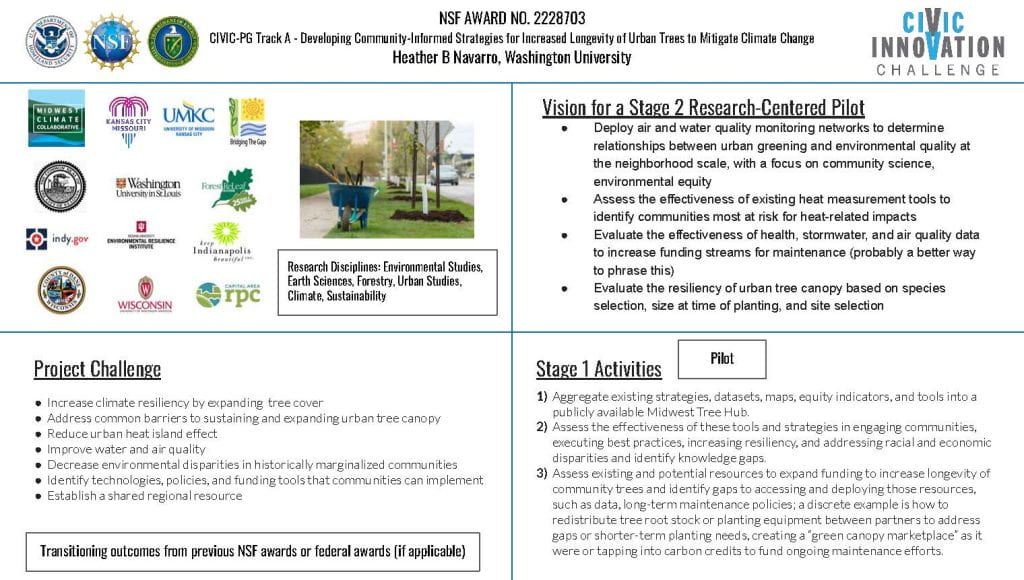
Other Important Links

Box Drive
The official docs are saved in this Box folder, including meeting notes.
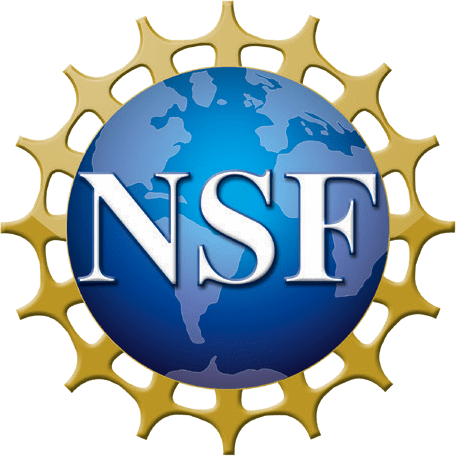
NSF CIVIC
Visit the official NSF CIVIC resources page for 2022 Stage 1 Grantees

Growing to its Potential
“The Value of Urban Nature for Communities, Investors, and the Climate” Rocky Mountain Institute, 2022
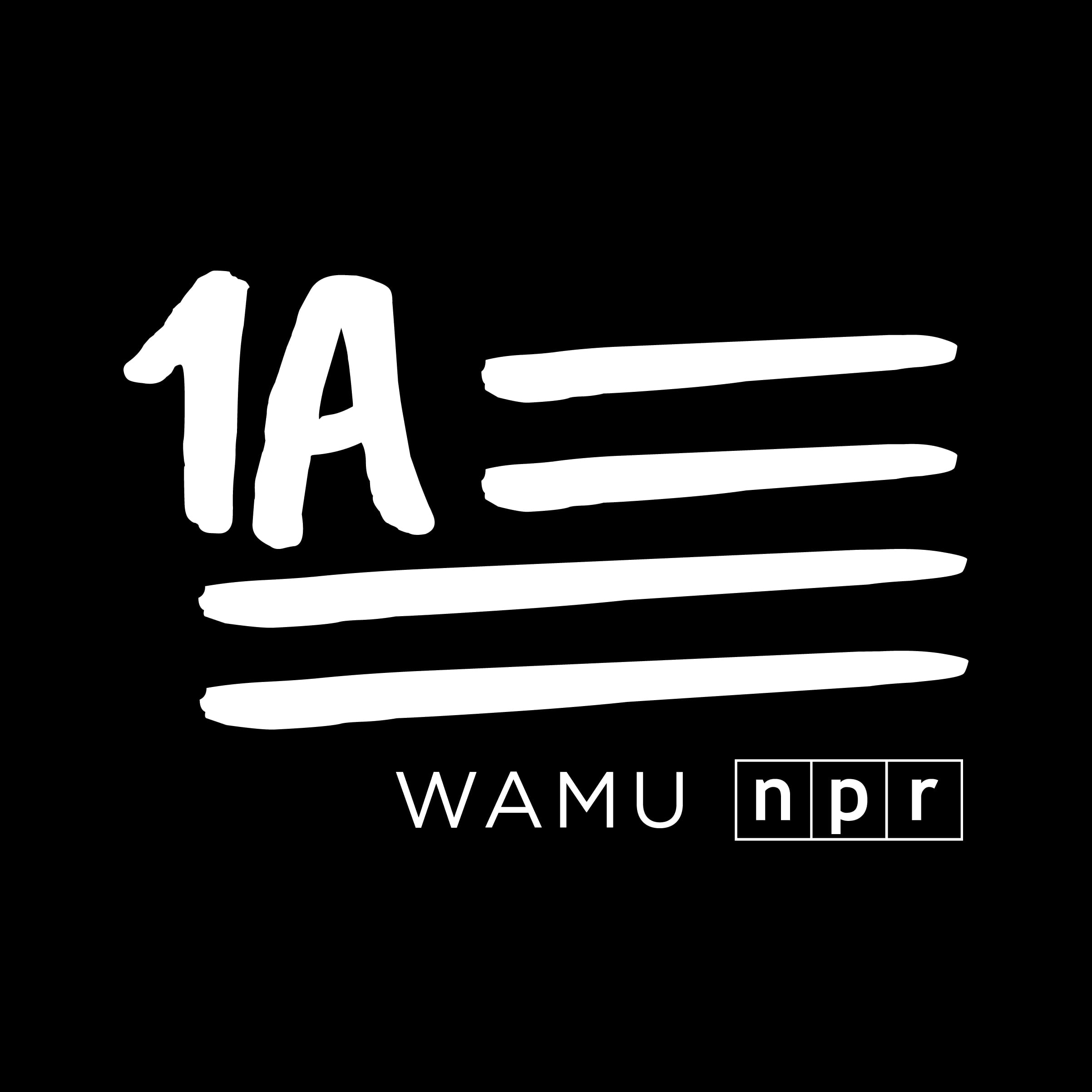
“Can cities go green without driving gentrification?”
Dec. 15, 2022 – Cities across the country are using green space to combat the effects of climate change. From 1A on WAMU: “Many are going beyond tree planting by rezoning abandoned infrastructure — like railroads and suspended highways — to create expansive, vibrant urban parks.”
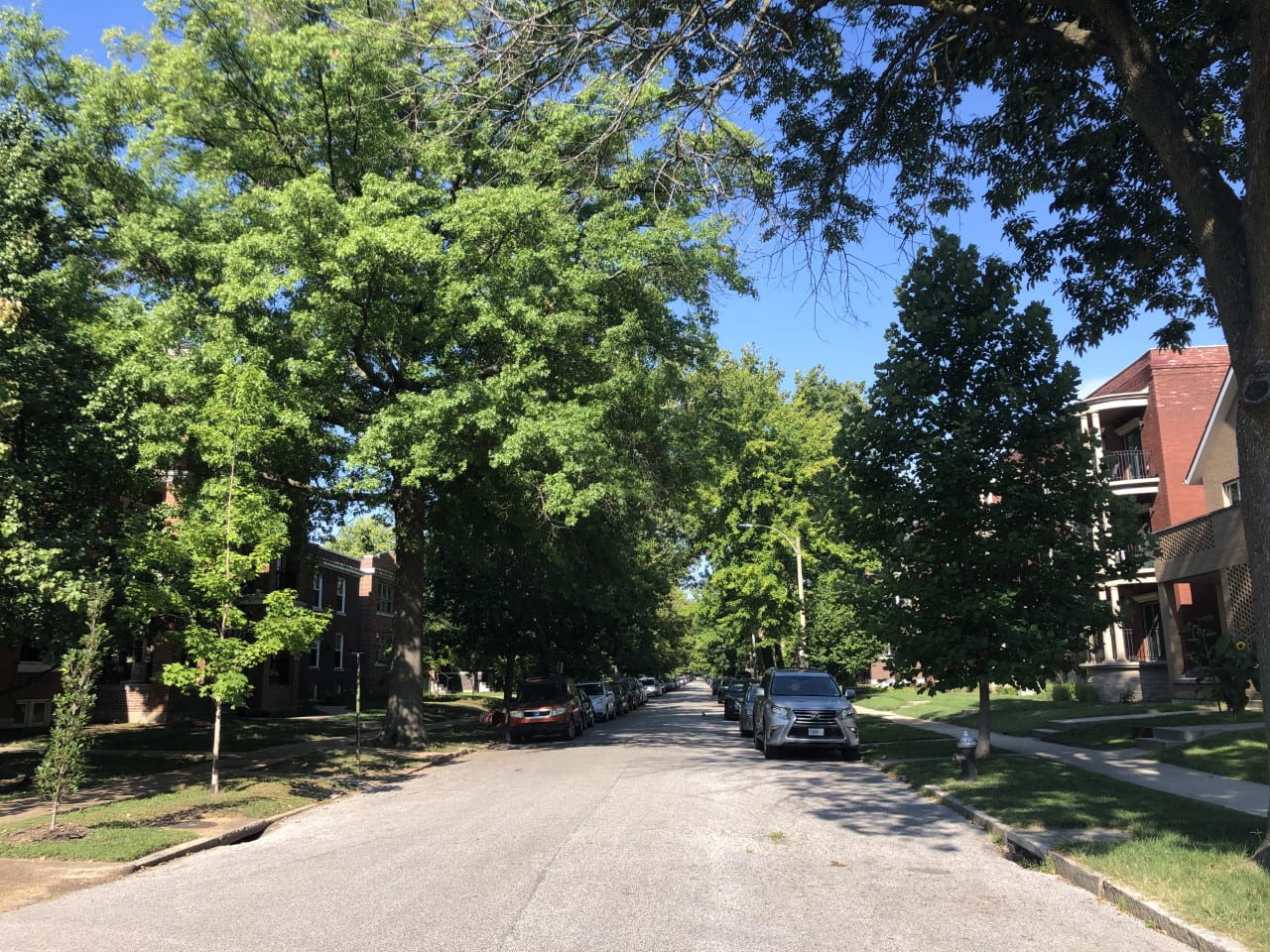
“The Trouble with Trees”
“Social and political dynamics of street tree-planting
efforts in Detroit, Michigan, USA”
Urban Forestry and Urban Greening (2018)
“In Detroit, Michigan, a non-profit organization responsible for planting street trees on city-owned property in
neighborhoods received “no-tree requests” (NTR) from 24 percent of residents approached between 2011 and
2014.”
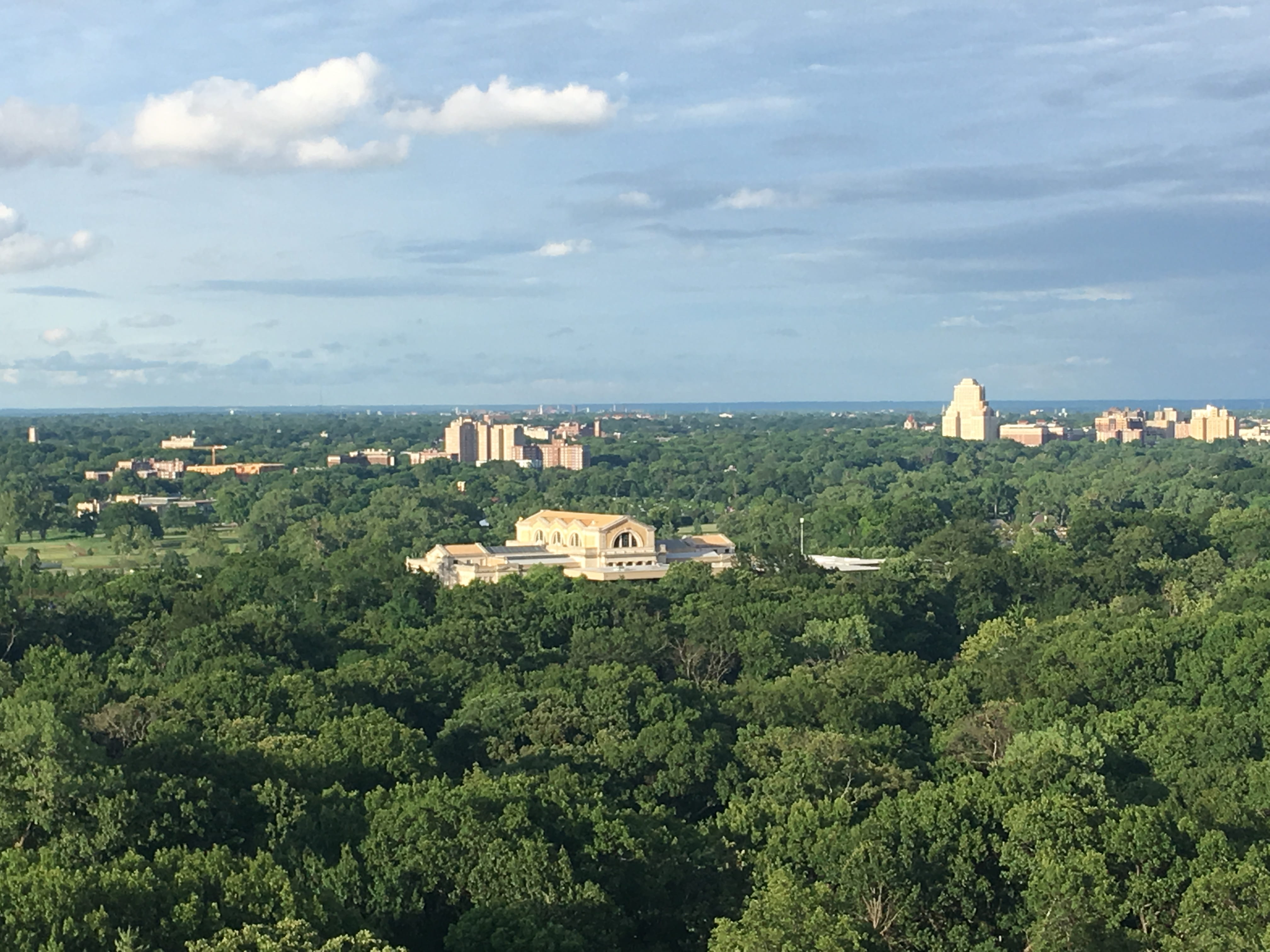
Redlining and Tree Canopy
“The disparity in tree cover and ecosystem service values among redlining classes in the United States” Landscape and Urban Planning (2022)
Redlined areas have lower percent tree cover and forest ecosystem services than non-redlined areas.
Other Resources
Morton Arboretum’s “Tree Tools” for Volunteers and Your Community
I’m in Chicago and learning about the Chicago tree equity project and the Chicago regional Tree initiative https://chicagorti.org/